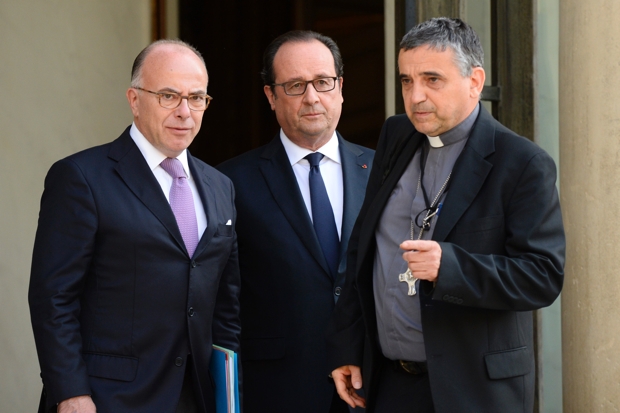Today’s attack was the 7th Islamist terrorist atrocity in France since January 2015. Two hundred and thirty six people have been killed by Islamist terrorism there in the last 18 months. This attack might only have killed one innocent person but it was a particularly brutal event: an 84-year-old priest had his throat slit while celebrating Mass. It was an attack that was designed to shock and to divide, to make it impossible to ignore the religious element of this act of terrorism.
Douglas Murray and Haras Rafiq discuss Europe’s summer of terror:
The two terrorists were shot dead by police before they could kill their other hostages, two nuns and several members of the congregation. But the news that one of the attackers was known to the authorities, and had attempted to go to Syria last year will raise questions about why the French security services did not have him under closer surveillance. Indeed, there are even reports in France this evening that the attacker had been imprisoned for trying to join Islamic State in Syria, but was then released with an electronic tag and was allowed out in the mornings unsupervised.
If this turns out to be true, it will cause major political problems for the French government. President Hollande and Prime Minister Valls are both deeply unpopular at the moment; Valls was even booed at the commemorations for the victims of the 14 July attack in Nice because mourners believed the government had not offered sufficient protection for the Bastille Day celebrations in the city.
Islamic State were quick to claim responsibility for today’s attacks. Pushed back militarily in the Middle East, the group is keen to show that they have ‘reach’ into Europe. Isis also claimed the Nice attacks, the axe attack in Germany last week and the suicide bombing there on Sunday. But the worry is that this attack was against a target that is almost impossible to defend. It is simply not practicable to guard every one of France’s 40,000 Catholic churches.







Comments